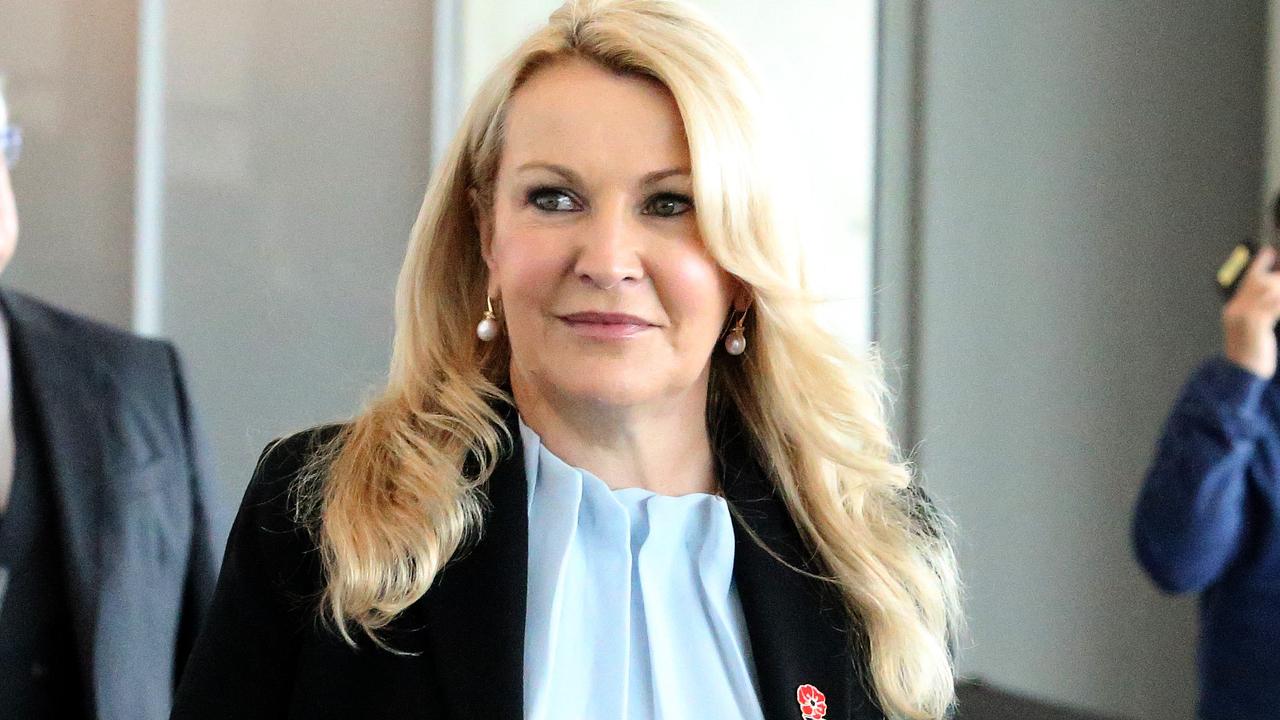Twiggy defends Fortescue’s ‘crazy’ green ambitions
Fortescue Future Industries’ eye-wateringly expensive climate plans will not put the mining giant at risk, its chief executive insists.
Fortescue Metals Group has defended its “crazy” green ambitions, saying the bold plans are a commercial imperative, not just environmental.
The miner’s new Fortescue Future Industries division has been inking deals around the world to look into massive “green” hydrogen and renewable energy projects, with founder and chair Andrew ‘Twiggy’ Forrest flagging potential costs worth more than $US100bn ($134.6bn).
At its annual general meeting late on Tuesday, a shareholder asked roughly how long it would take for FFI to become profitable.
“At the core of activities of FFI is actually the decarbonisation of Fortescue and we see that as a very important part of FFI’s activities,” chief executive Elizabeth Gaines replied.
“If you think about our goal to be carbon neutral by 2030, we see that as a significant commercial opportunity for Fortescue to generate more profits, to lower our costs, to get a premium for our iron ore, which will be green.
“There is some time between now and then but if we don’t decarbonise, not doing that puts at risk that we will lose the diesel fuel rebate, we’ll see a new carbon charge introduced, the cost of offsets will skyrocket.
“Not doing it will actually have a significant detriment on our profitability.”
Ms Gaines was also asked about The Australian estimating the total cost to build even a proportion of FFI’s project pipeline could top $US145bn ($A1965bn) and whether that seemed like a “hair raising” amount.
“We regard that as a significant opportunity … ahead of us in terms of the transition to green energy and renewable energy,” the executive replied.
“The Australian was suggesting that all of those were going to be funded immediately but that’s not the case … 10 per cent of net profit after tax to FFI.
“We’ve said all along that all of the projects that are developed by FFI will have their own funding sources secured without recourse to Fortescue, protecting Fortescue and Fortescue’s balance sheet.
“We don’t see it as hair raising or a concern – we actually we see it as an amazing achievement that the team has actually managed to pull together this portfolio of opportunities.”
The first cab off the rank was a green ammonia plant at Bell Bay, Tasmania, with a final investment decision expected in the first half of next calendar year, she said.
All of the projects had to make “great commercial sense”, she said.
“We will use the same discipline we have taken in the past developing the iron ore business.”
Earlier, Ms Gaines noted those not taking part in the race to improve their ESG (economic, social and governance) credentials were being left behind in securing financing.
Attending the meeting via videolink from Glasgow, where he has been campaigning heavily at the COP26 climate change conference, Mr Forrest waxed lyrical about FFI’s projects, riling against fossil fuels and plastics.
“We were already ahead of the resources curve when we started this company, considered crazy then like today – no doubt we have our detractors – but today we are again ahead of that curve, this time for green energy,” Mr Forrest said.
Ms Gaines also warned Fortescue expected more iron ore price volatility, due to a powerful brew of factors affecting demand in its key China market.
Prices for the steel making commodity hit record highs of $US233 per tonne in May, but have since plunged to less than $US90/t.
Ms Gaines described the market in the past few months as “dynamic”, resulting in price volatility.
The miner raked in average revenue of $US135/t last financial year, up 72 per cent compared to the previous period, falling to $US118/t in the September quarter.
But that was still robust, she said, being the fourth highest quarterly average price achieved by the company in the past seven years.
“In China, the volatility has been influenced by a number of factors, including a number of adverse weather events, Covid-19 related supply chain impacts, widespread power shortages, ongoing steel and sinter production curtailment, measures focused on reducing emissions and emissions intensity, as well as macro policy developments,” she said.
“In line with the usual seasonal factors ahead of winter in the northern hemisphere, as well as the Winter Olympics in Beijing, we do expect to see further volatility in the market.”
In Fortescue’s home state of Western Australia, the government has tipped an iron ore price across the forward estimates of just $US66/t, but a still healthy $US121.30/t for this financial year.
Originally published as Fortescue Metals Group warns of further iron ore price volatility, Twiggy defends ‘crazy’ green ambitions
For all the latest business News Click Here

